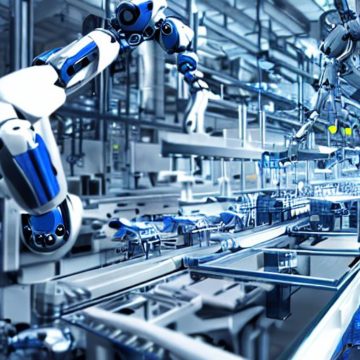 Daron Acemoglu, Gary Anderson, David Beede, Catherine Buffington, et. al., in VoxEU:
Daron Acemoglu, Gary Anderson, David Beede, Catherine Buffington, et. al., in VoxEU:
Rapid advances across a number of technologies, including generative AI, cloud computing and robotics, have raised the hope that productivity growth in the US and other industrialised countries can accelerate. They have also intensified public worries about job displacement and inequality.
Naturally, the macroeconomic effects of any technology will depend on the degree of its adoption. Labour market impacts may additionally depend on whether advanced technologies are being used for automation, displacing workers from the tasks they used to perform, or for other purposes, such as increasing the productivity of workers in tasks they are already performing or creating new tasks for them.
Despite much enthusiasm about these new technologies, many commentators are concerned that their adoption has been slow and uneven. Lack of systematic data on adoption patterns and how new technologies are being used in workplaces has been a major roadblock on developing a holistic picture of whether and how these technologies will impact the economy.
A small literature has used various sources of data on adoption of robotics technology (e.g. Acemoglu et al. 2020, Bonfiglioli et al. 2020, Koch et al. 2021), there are some recent European technology surveys, such as those studied in Genz et al. (2021) for Germany and Calvino et al. (2022) for Italy. But data on cloud computing, AI and other software systems have been more scant, especially in the US.
More here.
